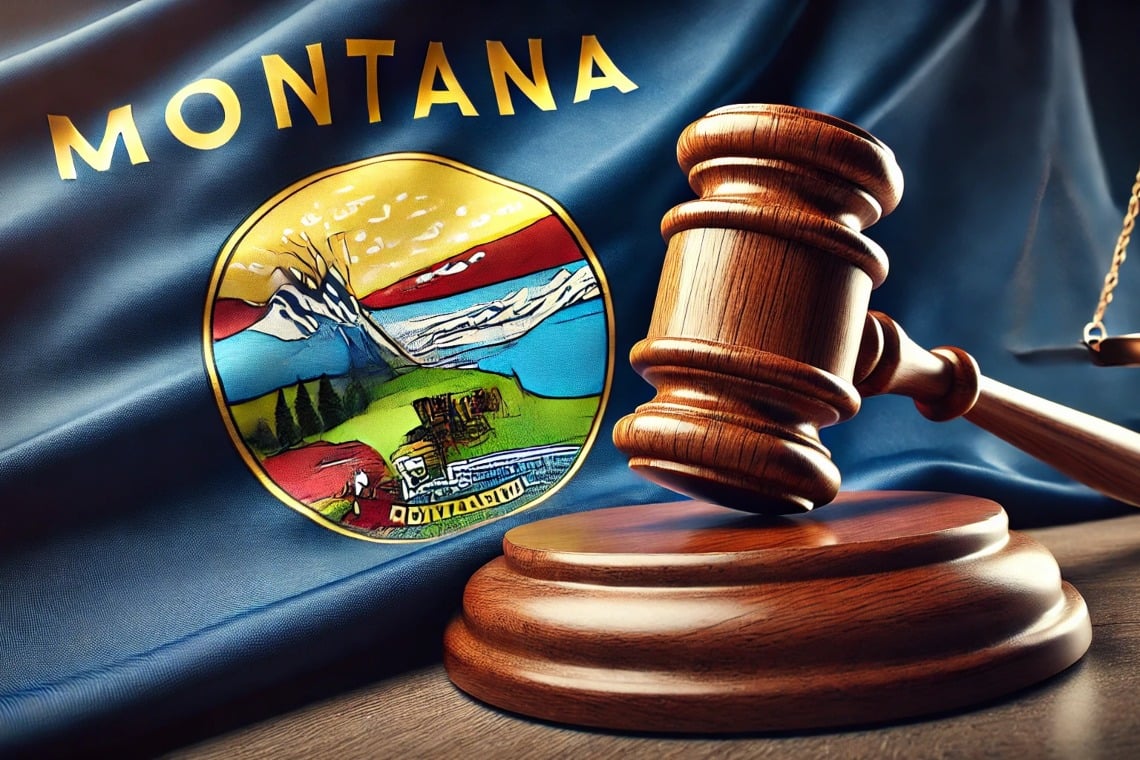The Montana Legislature Rejects HB429: A Setback for Bitcoin as State Asset
In a recent turn of events, the Montana Legislature has rejected HB429, a bill that aimed to establish a strategic reserve in Bitcoin for the state. This decision drew mixed reactions from various stakeholders, with some expressing disappointment and others welcoming the development.
Background of HB429
Introduced in January 2023, HB429 proposed the creation of a Bitcoin reserve fund, which would have been the first of its kind in the United States. The bill intended to allocate 1% of the state’s total budget to Bitcoin, with the initial investment amounting to approximately $32 million. The fund was designed to protect Montana’s economy from potential financial crises and inflation, as Bitcoin’s value is not subject to centralized control and is known for its stability and volatility.
The Reasons Behind the Rejection
Despite the innovative nature of HB429, the Montana Legislature decided against passing the bill. The primary concerns raised by lawmakers included the potential financial risks associated with Bitcoin’s volatility and the lack of a clear regulatory framework for the digital asset. Some members also expressed skepticism about the long-term benefits of investing in Bitcoin, while others felt that the state’s resources would be better spent on more pressing issues.
Reactions and Implications
The rejection of HB429 has left supporters of Bitcoin as a state asset feeling disheartened. Proponents argue that the decision was short-sighted and missed an opportunity to position Montana as a leader in the digital asset space. They believe that the potential benefits of investing in Bitcoin outweigh the risks, given its increasing popularity and acceptance as a legitimate form of currency.
From a broader perspective, the rejection of HB429 may not have a significant impact on individual investors or the Bitcoin market as a whole. However, it could potentially delay the mainstream adoption of Bitcoin as a viable state asset. Other states, such as New Jersey and Ohio, have shown interest in exploring similar initiatives, and the outcome of Montana’s bill may influence their decision-making processes.
Effects on Montana Residents and the World
For Montana residents, the rejection of HB429 may not have any immediate consequences. However, it could potentially limit the opportunities for the state to explore new avenues for economic growth and diversification. Furthermore, it may send a message to other businesses and investors that Montana is not open to embracing emerging technologies and innovative financial solutions.
On a global scale, the rejection of HB429 may not significantly impact the Bitcoin market or its adoption as a state asset. However, it could potentially delay the mainstream acceptance of digital assets as a legitimate form of currency and store of value. As more governments and institutions explore the potential benefits of investing in Bitcoin, the outcome of Montana’s bill may serve as a reminder of the importance of a clear regulatory framework and public understanding of the digital asset.
Conclusion
The rejection of HB429 by the Montana Legislature marks a setback for those advocating for Bitcoin as a state asset. While the decision may not have immediate consequences for individual investors or the Bitcoin market, it could potentially delay the mainstream adoption of digital assets as a legitimate form of currency and store of value. As the world continues to explore the potential benefits and risks of Bitcoin, it is essential that governments and regulatory bodies work together to establish a clear regulatory framework and foster public understanding of this emerging technology.
- HB429 proposed the creation of a Bitcoin reserve fund in Montana, making it the first of its kind in the United States
- The bill aimed to allocate 1% of the state’s total budget to Bitcoin, amounting to approximately $32 million
- The Montana Legislature rejected HB429 due to concerns over Bitcoin’s volatility and the lack of a clear regulatory framework
- The decision may not significantly impact individual investors or the Bitcoin market but could delay mainstream adoption
- Clear regulatory frameworks and public understanding are crucial for the mainstream acceptance of Bitcoin as a form of currency and store of value





